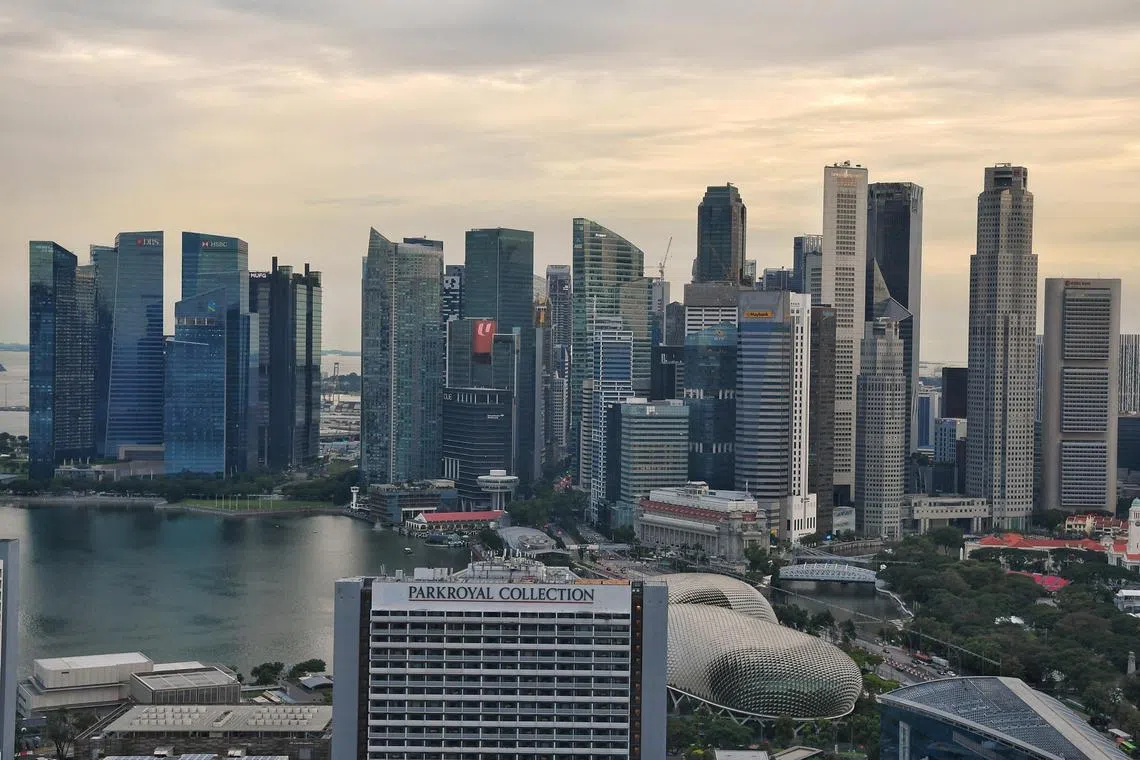Singapore fixed asset investments tumble to $956 million in Q3
Sign up now: Get ST's newsletters delivered to your inbox

The decline was likely due to weaker economic sentiment amid inflation concerns and the faltering global economy.
PHOTO: ST FILE
SINGAPORE – Singapore’s fixed asset investment (FAI) commitments dropped sharply in the third quarter of 2022, likely due to weaker economic sentiment amid inflation concerns and the faltering global economy.
FAI commitments garnered by the Economic Development Board came to $956 million for the July to September quarter, down from $6.3 billion in the previous quarter and $3.7 billion for the same period in 2021, figures from the Ministry of Trade and Industry’s third-quarter economic survey showed.
Total business expenditure (TBE) commitments totalled $1.6 billion, lower than the $2.1 billion reached in the second quarter but higher than $230 million in the year-ago period. The third-quarter investments are expected to create more than 4,300 jobs in the coming years and generate around $4.4 billion in value-add to the economy once the projects are fully implemented, MTI said.
Maybank economist Chua Hak Bin said the slowing global economy and the downturn in electronics demand is likely cooling new investment commitments as companies reassess the need for additional manufacturing capacity.
“Global chip sales have fallen sharply in recent month as consumers cut back on spending, particularly on electronics products. Consumers have also shifted their spending to services rather than goods because of the reopening,” Dr Chua noted. He added that investments may continue to fall given higher funding costs and the rising risk of a recession.
Fixed asset investment refers generally to a company’s spending on facilities, equipment and machinery, while TBE covers annual operating expenditure here, such as wages and rentals, but excludes depreciation.
The Economic Development Board’s medium to long-term yearly target for such investment is between $8 billion and $10 billion.
The total for the first three quarters of 2022 stands at about $9.4 billion, well within the target range for the full year.
TBE commitments in the first three quarters amount to about $4.6 billion, just shy of the full-year target of $5 billion to $7 billion.
The services sector contributed the most to fixed-asset investments in the third quarter, drawing in commitments of $544 million, with the infocommunications and media segment leading the way with $399 million, while the research and development cluster drew in $86.2 million.
Biomedical manufacturing attracted the most fixed-asset investment commitments in the manufacturing sector at $237 million.
Local investors contributed the most to fixed-asset investments, pumping in $469 million, or about 49.1 per cent of the third-quarter total.
The services sector also took the spotlight for TBE commitments, attracting the highest amount at $1.2 billion with the headquarters and professional services cluster and infocomms and media being the two dominant clusters.
The biomed manufacturing and transport engineering clusters attracted the largest amounts of manufacturing TBE in the quarter.
In July, Chinese companies WuXi Biologics and WuXi AppTec announced plans to invest up to $4 billion in Singapore while filtration solutions producer Pall Corporation said in August that it will set up a new $140 million manufacturing facility that will create around 300 jobs in science, engineering and manufacturing.
Investors from the United States were the largest source of TBE commitments in the third quarter, contributing $593 million, or 37 per cent, of the total.


